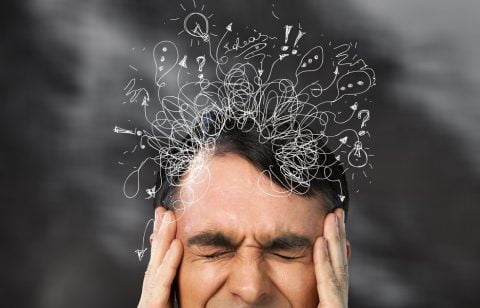Have you ever found yourself forgetting where you put your keys? Or maybe you’ve walked into a room and completely forgotten why you went in there in the first place?
These small lapses in memory can happen to anyone, but for some, they may be early signs of a larger issue: memory loss. Memory loss can be a scary thing to experience, whether it’s yourself or a loved one who is showing symptoms. But don’t worry, you’re not alone in this journey. Understanding these signs is crucial for maintaining brain health and assessing cognitive age, allowing for early intervention and support.
| Did you know? India’s increasing lifespan and decreasing fertility rates have led to a growing number of older individuals, with people over 60 years of age predicted to constitute 19.1% of the total population by 2050. This demographic shift is expected to be accompanied by a dramatic increase in the prevalence of dementia, with an estimated 7.4% of adults over the age of 60 in India currently living with dementia, which translates to about 8.8 million individuals. |
Memory loss is more common than you might think, especially as you age. It’s estimated that over 50 million people worldwide are living with some form of dementia, and many more may be experiencing the early stages of memory loss without even realizing it. But the good news is that understanding the symptoms of memory loss can help us take proactive steps towards managing and potentially slowing its progression.
This blog will explore the signs of memory loss, including short-term memory loss symptoms and early signs of memory loss. It will discuss why it’s important to recognize these symptoms and seek help when needed. So let’s dive into the world of memory loss and empower ourselves with knowledge to better navigate this journey together.
These may be signs of memory loss
It can be unsettling to notice changes in your memory as you age. Misplacing keys or forgetting a name occasionally is normal, but when these incidents become more frequent and start affecting your daily life, it may be a sign of memory loss. This section will explore some common early signs of memory loss and help you check if you are experiencing any of them.
1. Forgetfulness
One of the most noticeable signs of memory loss is forgetfulness. Do you often forget important dates or appointments? Do you struggle to remember recent conversations or events?
These lapses in memory can be frustrating and may cause you to feel anxious about your cognitive abilities. If you find yourself consistently struggling with forgetfulness and it is impacting your daily life, it may be worth investigating further.
2. Difficulty concentrating
Another early sign of memory loss is difficulty in concentration. Have you found it challenging to stay focused during conversations or while reading a book? Do you frequently lose track of what you were doing?
Trouble concentrating can impact your productivity and make it harder to complete everyday tasks. This can make it challenging to complete projects or engage in social interactions effectively. If you find that your ability to concentrate has been declining over time, it’s worth noting and discussing with a doctor.
3. Confusion with time and place
Memory loss can also manifest as confusion with time and place. You might find yourself getting disoriented in familiar surroundings or struggling to recall the sequence of events. You may even get lost in familiar places or have trouble remembering how to perform routine tasks, like cooking a meal or using household appliances.
Confusion can lead to feelings of frustration and a sense of being disconnected from your surroundings. If you frequently feel disoriented or struggle with basic daily activities, it’s essential to bring this up with your doctor.
4. Word-finding difficulties
Struggling to find the right words during conversations can be an indication of memory loss. Memory loss can manifest in language and communication difficulties. If you often experience tip-of-the-tongue moments where the word feels just out of reach, it could be a sign that your memory function is declining.
Have you noticed yourself having trouble finding the right words during conversations? Do you frequently repeat phrases or struggle to articulate your thoughts clearly? These issues might point towards underlying memory impairment.
5. Decreased problem-solving skills
Memory loss can also affect your ability to solve problems effectively. Have you noticed a decline in your problem-solving skills, such as finding it hard to follow instructions or making decisions? These challenges can impact your independence and confidence in handling daily tasks.
This can further impact your ability to make sound judgments. Are you experiencing difficulties in managing finances, following recipes, or making decisions that were once routine for you? If you find yourself struggling in these areas, you may consider memory loss as a potential factor.
6. Difficulty retaining new information
Trouble retaining new information is another symptom of memory loss. You might notice that you have difficulty learning and remembering new names, faces, or facts. Are you finding it challenging to remember details from recent events or conversations? Do you struggle with following instructions or comprehending new concepts?
This can be frustrating and impact your ability to engage in conversations or learn new skills. If this pattern persists over time, it’s worth considering whether these difficulties extend beyond the occasional lapse in memory. You must seek further evaluation.
7. Mood and personality changes
Memory loss can also affect your mood and personality. You might experience increased irritability, anxiety, or depression. These changes in emotions can be linked to the frustration of struggling with memory loss or feeling a loss of control over your cognitive abilities. If you notice significant shifts in your mood or personality, you should discuss them with a doctor.
Are they really signs of memory loss?
Remember, experiencing one or two of these symptoms occasionally is not necessarily a cause for concern. However, if you find these signs becoming more frequent or severe, it’s important to consult a doctor for further evaluation.
While self-diagnosis is not recommended, being aware of these early signs can help you recognise when it might be appropriate to seek medical advice. If you have any concerns about your memory or cognitive function, don’t hesitate to reach out to your doctor. They can perform assessments and guide you in managing memory-related issues effectively.
Conclusion
In conclusion, it is important to be aware of the early signs of memory loss and take action if you or a loved one are experiencing any of these symptoms. Remember, early detection can greatly impact the management and treatment options available.
If you have recognized any of the short-term memory loss symptoms mentioned in this blog, you should seek further evaluation. There are tests available that can help determine the extent of your condition and guide you towards appropriate interventions.
Additionally, it is crucial to remember that memory loss is not something to be ashamed or embarrassed about. It is a common condition that many individuals face as they age. The more you talk about it and seek support, the better equipped you will be to manage your cognitive health.
Ivory is an organisation committed to helping individuals understand their neurological conditions better. If you would like to learn more about memory loss or explore their range of resources and tests, please visit their website at liveivory.com.
Take control of your cognitive health today, because every memory matters.




